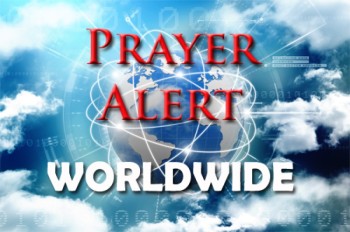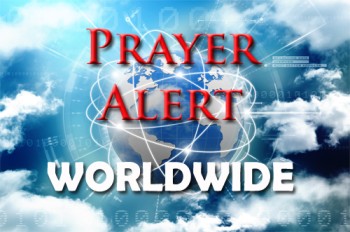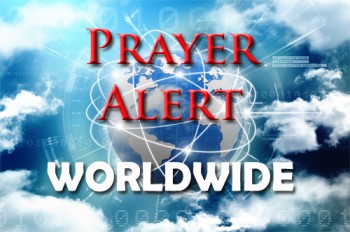Displaying items by tag: pandemic
China: jailed Wuhan reporter is missing
Zhang Zhan, a journalist imprisoned for reporting the truth about the early days of the Covid-19 outbreak in Wuhan, has gone missing after her scheduled release from Shanghai women’s prison. She served a four-year sentence but her current whereabouts are unknown. Her family’s reluctance to provide information suggests they are under pressure from the authorities. Zhang risked her life to travel from Shanghai to Wuhan on 1 February 2020, documenting the severe conditions in hospitals and crematoriums through livestream videos. Her reporting, which contradicted the official narrative, led to her detention in May 2020. She was charged with 'picking quarrels and provoking trouble’, a common tactic used to silence journalists and dissidents in China. Zhang’s real 'crime' was exposing truths that the Chinese regime wanted to hide, particularly about its handling of the pandemic. There are widespread demands for the government to disclose her whereabouts and prove she is safe; one campaigner says that this case highlights the regime's paranoia and censorship and that Zhang should never have been imprisoned for her reporting.
AstraZeneca withdraws Covid-19 vaccine worldwide
AstraZeneca has announced the global withdrawal of its Covid-19 vaccine, Vaxzevria, citing a surplus of newer vaccines targeting emerging virus variants. The company previously halted its marketing authorization in the European Union in March, with the European Medicines Agency confirming on May 7 that the vaccine is no longer authorised. This decision reflects the reduced demand for Vaxzevria, which is no longer being manufactured or supplied. AstraZeneca stated that the variety of new vaccines available has led to this decline in use. Despite the withdrawal, the company highlighted that Vaxzevria played a crucial role in the pandemic's early stages, saving an estimated 6.5 million lives and delivering over 3 billion doses globally. Other countries, including Australia, have ceased its use, transitioning to newer vaccines since June 2021. Vaxzevria, which was administered in two doses and occasionally as a booster, is based on an adenovirus vector carrying a gene from SARS-CoV-2. While effective overall, it was linked to a rare but severe side effect, thrombosis with thrombocytopenia syndrome (TTS), affecting about two to three per 100,000 vaccinated individuals.
36 million people across the European Region may have developed long COVID over the first 3 years of the pandemic
According to the World Health Organization (WHO), an estimated 36 million people in the European region may have developed long COVID during the first three years of the pandemic. This condition, characterised by lingering symptoms post-COVID-19 infection, presents a significant public health challenge. The WHO's statement highlights the need for comprehensive care and support for those affected. Long COVID symptoms can vary widely, from fatigue and cognitive dysfunction to more severe physical issues, impacting daily life and work capacity. The organisation stresses that these long-term effects require serious attention and response from healthcare systems. The WHO's Regional Director for Europe, Dr. Hans Henri P. Kluge, emphasises the critical need to understand and address long COVID. He calls for sustained research efforts, investment in rehabilitation services, and public health strategies to manage and mitigate its impact. This situation reflects the pandemic's ongoing and evolving challenges, with long COVID affecting millions across the European region. It underscores the importance of continued vigilance, research, and healthcare system adaptation to meet the needs of those living with the long-term effects of COVID-19.
Covid jab skipped by 44%, study finds
A study published in the Lancet, focused on the summer of 2022, highlights that over 7,000 hospital admissions related to Covid-19 could have been prevented if the population had been fully vaccinated as recommended. The study analysed health records of the entire UK population over five years old. It found significant under-vaccination rates across the UK, with the highest in Northern Ireland (49.8%) and the lowest in Wales (32.8%). Different groups were recommended varying numbers of vaccine doses based on age and health conditions. The study also noted a correlation between under-vaccination and increased rates of severe illness, hospitalisation, and deaths from Covid. The research aims to inform public health campaigns and identify groups with lower vaccination rates, such as younger people, men, and those in poorer areas or from ethnic minorities. The potential of using large-scale NHS data for broader medical research was also emphasised. For more details, see the full article at the ‘More’ link below.
Up to 167,000 people caught Covid in hospital in second wave
A study suggests that 95,000 to 167,000 people in England may have contracted Covid-19 in hospitals during the second wave of the pandemic, from June 2020 to March 2021. Researchers from Oxford University analysed data from 145 English NHS acute hospital trusts, considering factors like the availability of single rooms and vaccination of healthcare workers. The study found that 1% to 2% of all hospital admissions during this period led to hospital-acquired infections. The highest infection rates were observed in the north-west regions of England. The research underscores the importance of improving hospital design to limit the transmission of future pathogens and the need for measures to reduce hospital transmissions. Vaccination of healthcare workers was associated with lower infection rates. The findings are significant for protecting vulnerable patients, healthcare workers, and communities.
Levels of death still as in pandemic
During lockdown newspapers reported thousands dying weekly. But last week 1,082 more people died than would be expected. These ‘excess deaths’ have averaged 1,000 for 15 weeks this year: they are not Covid deaths, so not newsworthy. Most deaths occur in private homes. This year there were 6,000 fewer deaths than expected in hospitals and care homes but over 17,000 more in people’s homes in England and Wales alone. Doctors are concerned about the unexpectedness of these deaths. 30- to 59-year-olds have excessively high death rates with heart attacks and diabetes. Symptoms were untreated during lockdown. People who need treatment now are struggling to get it. Waiting lists are larger than ever and getting a GP appointment is a lottery. Unless these issues are addressed, these diseases will continue to go untreated.
North Korea: over a million Covid cases
Last week we prayed for North Korea after Covid reached it. The World Council of Churches (WCC) has now warned of a major humanitarian crisis. There are rising Covid cases (currently 1.2 million) and 50+ deaths. 5% of the population is being monitored. The population is unvaccinated, and without adequate ventilators or other essential supplies the risk of an unprecedented death toll is very high. This outbreak greatly compounds the pre-existing humanitarian situation, particularly related to food insecurity. The WCC is calling for urgent humanitarian responses by the international community which are equal to the gravity of the crisis. In particular, newly developed antivirals such as Paxlovid must be provided as a matter of urgency, as well as diagnostics, ventilators, PPE, vaccines, and other medical needs, as well as essential food supplies. WCC wants centralised coordinated approaches through the UN, and for current sanctions to be lifted as a matter of fundamental ethical and humanitarian responsibility.
UK churches mark two-year anniversary of lockdown
Churches across the UK have marked the second anniversary of the first Covid-19 lockdown with walls of reflection and remembrance in cathedrals and churches as people brought photos, prayers and memories to honour those who have died. Cathedrals and other landmarks across the country have lighted up their buildings in yellow as a sign of support. The Bishop of London, chair of the UK Commission on Bereavement, said, ‘I recall how helpless so many people, including myself, felt in the early days of the pandemic, surrounded by constant reminders of the magnitude of loss being experienced across the country. Today is a day to reflect, pause and remember those we have lost over the past two years and pray for the millions bereaved during the pandemic.’
Covid infections rising again across UK
Covid infections are increasing across the UK with about one in 25 people infected, according to the latest estimates from the Office for National Statistics (ONS). In Scotland, 300,000 people - one in 18 - have coronavirus, the highest level recorded during the pandemic. A sub-variant of Omicron, called BA2, is now thought to be the most common strain in most of the UK. Recent easing of restrictions and waning immunity from the vaccines could all be factors in the increase. Health secretary Sajid Javid said Omicron had been the last variant to be a concern, and the country had ‘successfully navigated’ it, but the Government continued to monitor the situation ‘very carefully’. The ONS infection survey tests thousands of people randomly in households across the UK and estimated 2.6 million people tested positive in the week ending 5 March. It was 2.4 million the week before.
A call to churches to help orphans
The World Evangelical Alliance (WEA) and World Without Orphans (WWO) are calling on churches to help in a crisis. The ‘Lancet Child and adolescent health modelling report’, by national and international government and non government organisations, estimates that over seven million children globally have lost a parent or caregiver due to Covid-19. They estimate that for every person killed by Covid, one child is orphaned or loses a caregiver. That equates to one child every six seconds facing a heightened risk of lifelong adversity unless given support in time. Rev Dr Rebecca Goropevsek said, ‘We encourage church leaders to read the report and prayerfully consider how the pandemic has affected families and children in their own context and what support they can offer. Pray for families that are safe and nurturing to adopt and foster orphans; and for communities to protect vulnerable children from adversity and violence.









